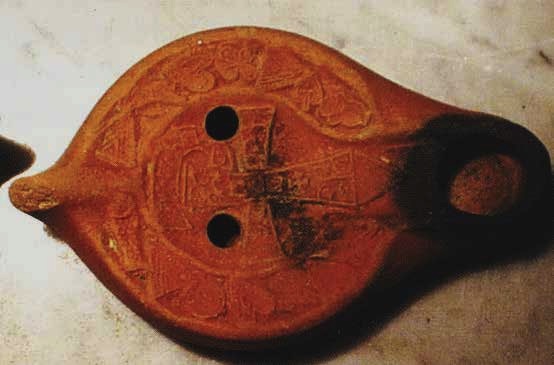The Frigidarium of the Villa is the most refined room due to its octagonal shape and decoration.
The room demonstrates its elegance in the rich architectural structure, the marble finishes and the mosaic floor decorated with a marine procession inside the octagon.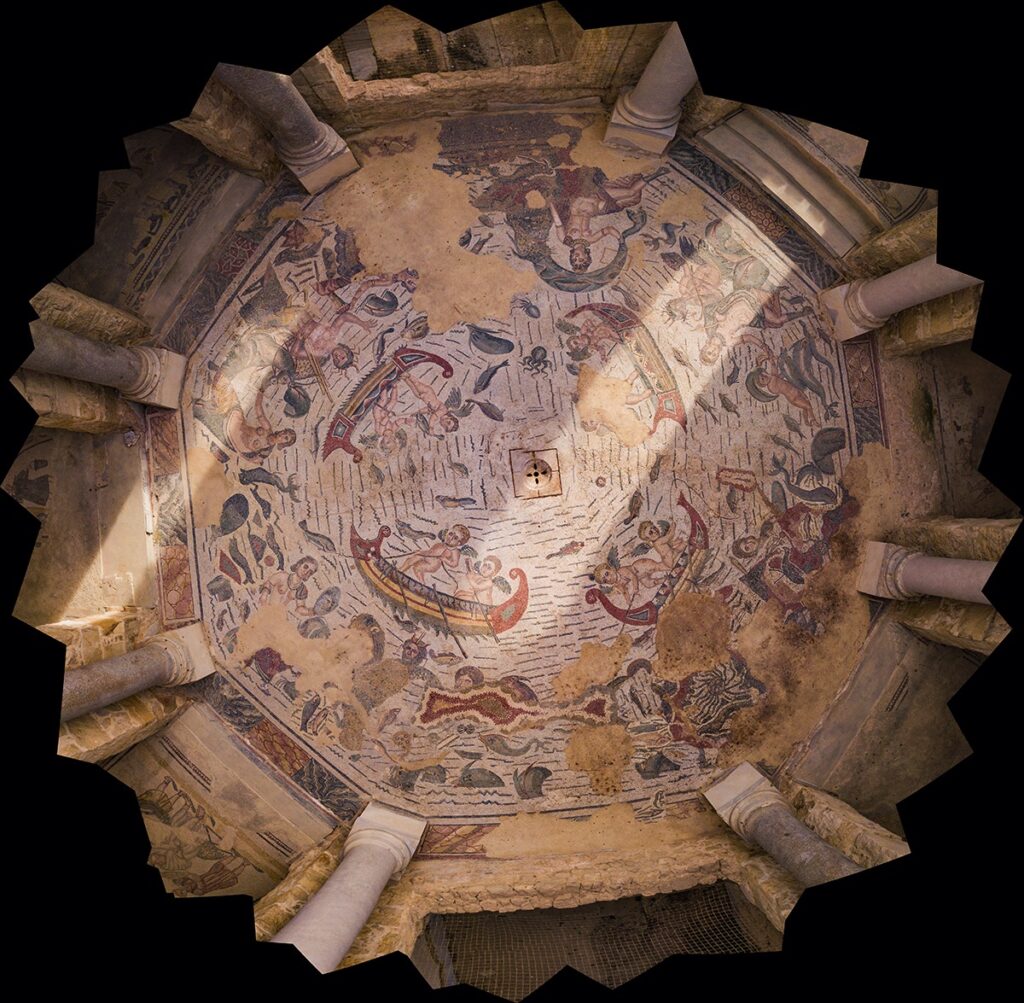 In the four lateral niches were the
Apodyteria
In the four lateral niches were the
Apodyteria
, the floor mosaic presenting generic scenes with changes of dress and preparation rites.
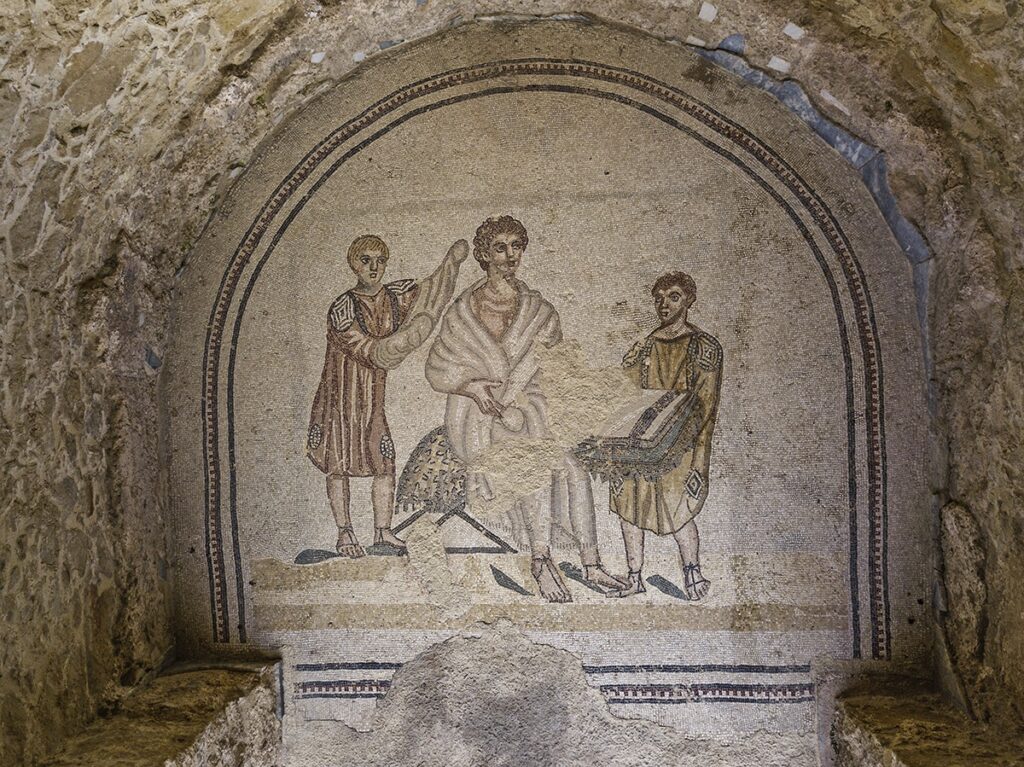 The spacious hall, with a central plan, is presented as the first room of the baths route, a sort of antechamber where the changing rooms are located in four corner niches.
The spacious hall, with a central plan, is presented as the first room of the baths route, a sort of antechamber where the changing rooms are located in four corner niches.
This room is connected to two pools, one smaller for immersion and the larger for swimming.
The Villa del Casale has an inverted route, compared to the traditional baths route that provided an entrance to the baths through different rooms: from the warmest to the hottest room and finally, after cleansing the body and massage, people would enter the Frigidarium, where there were also cold water pools. The octagonal space is divided on its sides by a number of columns on plinths, of
Corinthian order
, on which was placed a thick cornice where the vault covering the room began.
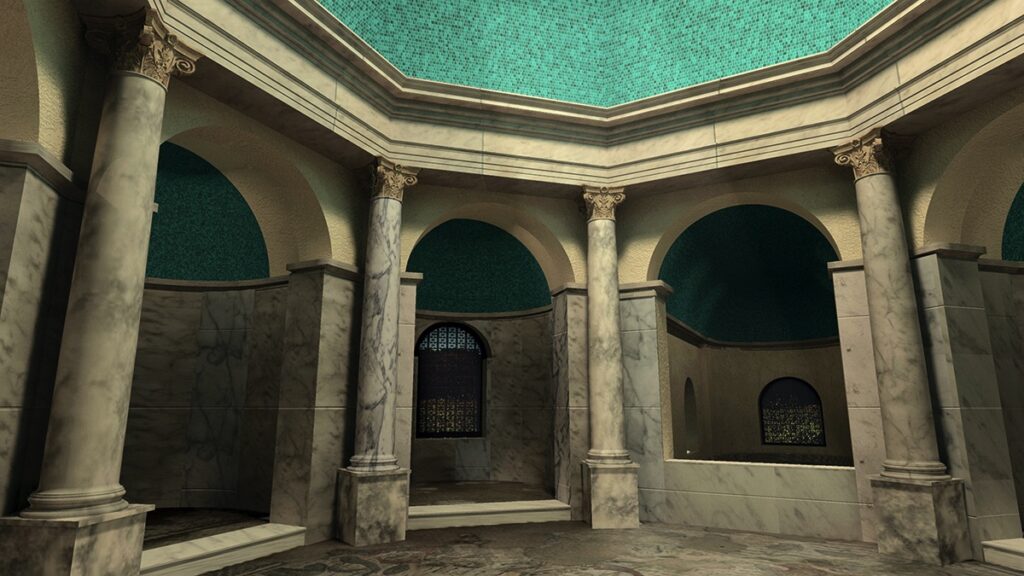 A recurring dome as typology, with a central hole that filtered both light and rainwater, which was collected in the floor and channelled into a duct, with a manhole that is still visible today.
A recurring dome as typology, with a central hole that filtered both light and rainwater, which was collected in the floor and channelled into a duct, with a manhole that is still visible today.
This room was reused at length in the periods following the initial abandonment of the Villa. Its floor mosaics were restored with rough techniques and large tiles characteristic of the period between the 5th and 6th century AD. In some areas, the mosaic figures have been disturbed by the insertion of tiles in the missing parts that do not follow the original designs.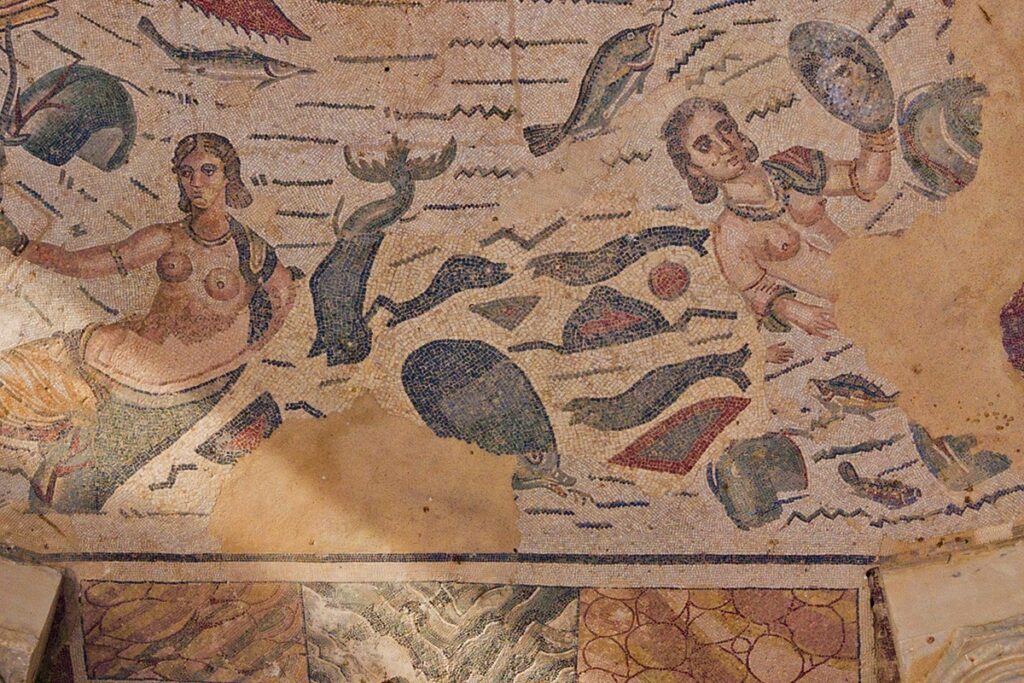 Oil lamps with Christian symbols have been found in this room, making its use as a place of worship in early Christian and pre-Byzantine times plausible.
Oil lamps with Christian symbols have been found in this room, making its use as a place of worship in early Christian and pre-Byzantine times plausible.